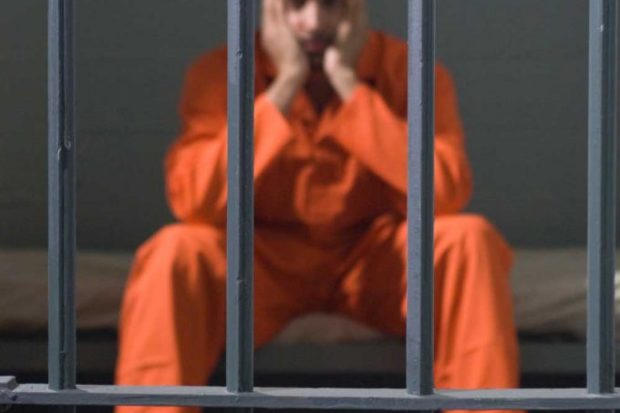
By Boston Woodard
“I’m sittin’ here lonely like a broken man,
serve my time doing the best I can,
walls and bars they surround me,
but I don’t want no sympathy.”
—Grand Funk Railroad
I remember those lyrics from Grand Funk Railroad’s song “Inside Looking Out” while in a Massachusetts state prison in 1973. I was 19. Those lyrics have been my mantra while in prison.
After that short prison sentence for robbery, I fled to California while still on parole. I was young and uneducated with no sense of direction. I reoffended numerous times and was eventually sentenced to a long stint in the California Department of Corrections and Rehabilitation (CDCR). Folsom, Soledad, Susanville and San Quentin were among some of the joints I served time in.
While in California’s prison system, I managed to steer clear of the inherent “illegal activities” prevalent there. After serving more than three decades behind bars, disciplinary free and jumping through every rehabilitation hoop queued in front of me, and after I successfully completed all programs offered to me, I was paroled. That is called rehabilitation.
The Commonwealth of Massachusetts, wanting its pound of flesh, decided to extradite me the day I was to parole in California. With no new warrants, cases or charges, a 44-year-old parole violation was leveled against me for absconding—not reporting to the parole office on a number given to me as a teenager.
During my time in California, Massachusetts—knowing where I was—had opportunities to extradite me; they chose not to. I was never notified by the CDCR that Massachusetts wanted me. I assumed because they failed on numerous occasions to retrieve me from California, they did not want me. Had I been notified, I would have petitioned for action that might have allowed the remainder of my Massachusetts parole to run concurrent with my California sentence. The law indicates I should have been notified.
Parole revocation hearings determine whether a parolee’s freedom should be revoked. Taken into consideration are several principle factors: Is the person a danger? Does he understand the seriousness of his actions? What is his potential for reoffending?
Before my hearing in Massachusetts, I was informed by an institutional parole officer (IPO) that a parole revocation panel “has two, occasionally three” members reviewing a case. There were approximately 12 people at my hearing. Seems they all wanted to come see the old guy who was on the lam for nearly half a century.
Present during my hearing were several criminal justice students, prison administrators, a parole supervisor, the IPO and unknown criminal justice enthusiasts.
During the hearing, I was not allowed to talk about my more than three decades of rehabilitation (in California) at length. Numerous support letters from family, friends, groups/ organizations, job offers and housing arrangements were all ignored by the Massachusetts parole panel and deemed irrelevant.
I was also informed by the IPO that “any outside friends a prisoner makes while behind bars are not considered real friends by me or the Massachusetts parole officials.”
This same IPO told me that I “was not allowed legal representation during the hearing.” This turned out to be a lie. I signed a paper agreeing to proceed with the hearing under false pretenses.
After the hearing, and learning of the lie about not being allowed to have legal representation at my hearing, I confronted the IPO, informing him I will be reporting his lie to his supervisors. His retort was, “Hey! You want a quote? You didn’t need a lawyer, you weren’t getting a parole anyway!” And they say prisoners have problems communicating.
My Massachusetts parole revocation panel said they were not satisfied with California’s rehabilitation process. One panel member said, “California failed you.” It was obvious that this Massachusetts parole revocation panel was showboating for its assembled audience, bad-mouthing California’s rehabilitation process to justify revoking my parole.
The entire hearing was perfunctory, the panel was in full performance for their invited guests. It was the stink if injustice at its best.
I’m down to only months remaining on my 44-year-old parole violation in Massachusetts, a state I have no desire to be in after my release.
As my mantra goes, “Serve my time doing the best I can, walls and bars they surround me, but I don’t want no sympathy.”
*****
Boston Woodard is a prisoner/ journalist who has been contributing to the Community Alliance since 2005. He is the author of Inside the Broken California Prison System (www.amazon.com). To learn more about Boston, contact marvinmutch@ gmail.com.
